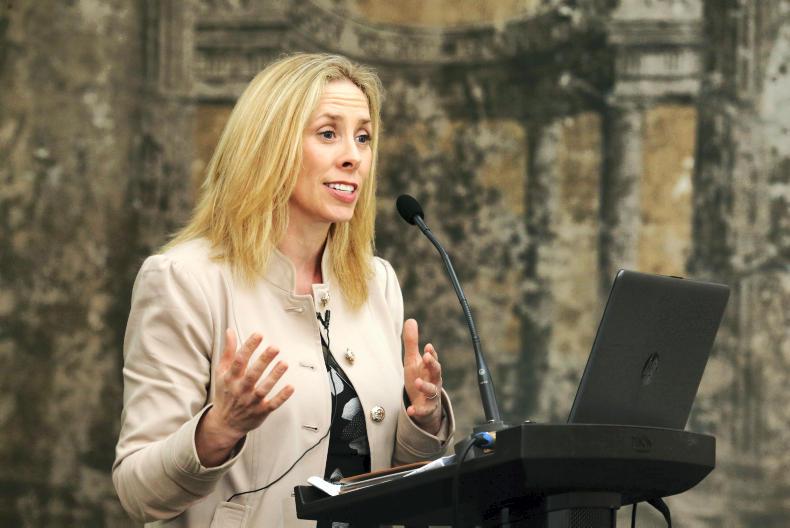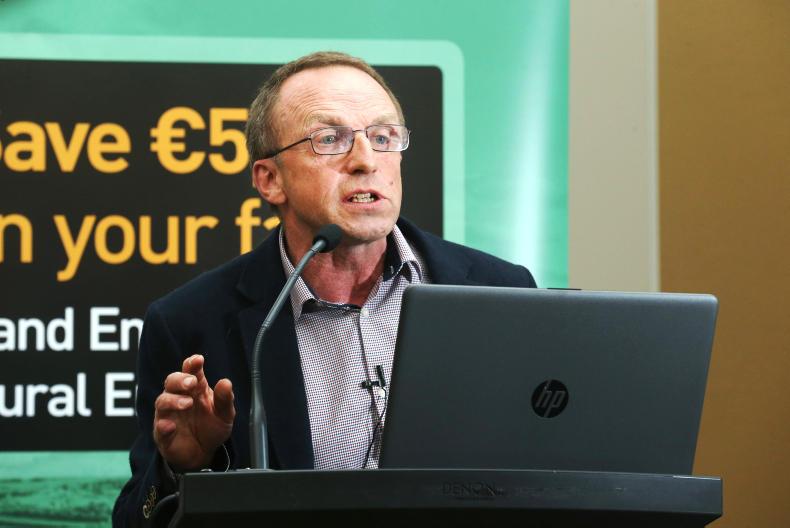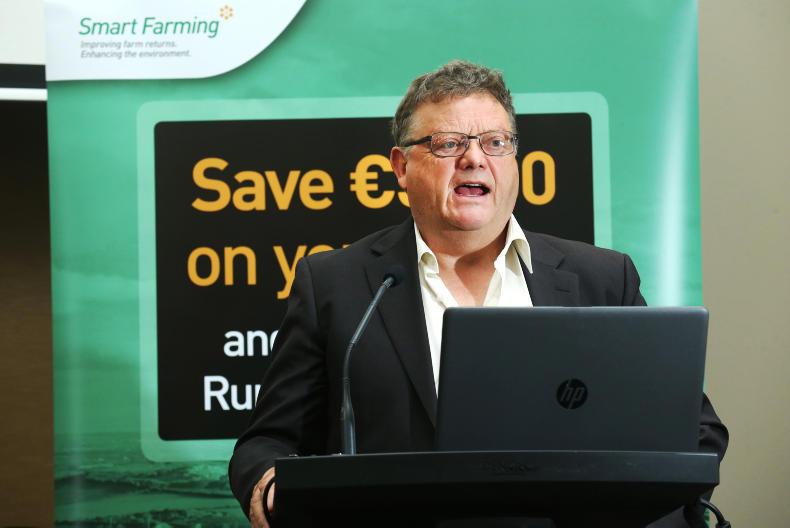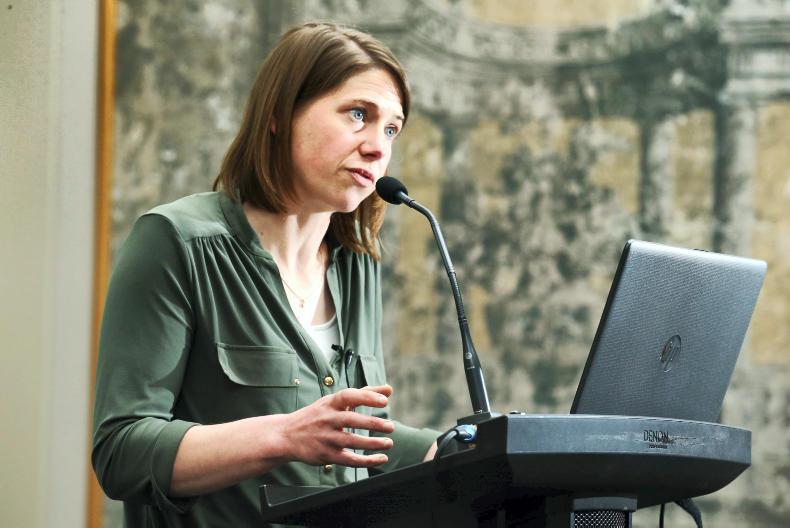The recent Smart Farming Seminar in April 2019 outlined how farmers could save over €7,000 on their farm, while reducing farm emissions. Here are some take away messages from the seminar:
Feed

Lower protein diets can be fed without negatively impacting animal performance. This was the key message from UCD’s Dr Karina Pierce. Lower protein diets are also good for the environment as they reduce nitrogen excretion, especially urinary nitrogen. Such diets reduce feed costs and reliance on imported feed stuffs. Therefore, reducing crude protein in animals’ diets contributes to the improved sustainability of Irish agriculture. However, when buying rations always consider energy content first, then protein, mineral and fibre content, in that order. Remember the cheapest ration doesn’t always mean the best value.
Biodiversity

Donal Sheehan from the BRIDE project in Co Cork demonstrated how farmers are making real improvements to biodiversity on higher stocked farms in a locally led way. The BRIDE project aims to have a certain percentage of each farm in a biodiversity-managed area, which may include things like hedgerows, watercourses, wetlands, derelict buildings/historical monuments, scrub areas or waste ground. The project rewards farmers for environmental improvements and reconnects their communities with nature, where the green agenda is more embraced than feared.
Once-a-day milking

Once-a-day milking – better for the environment, better for farm profitability, but most of all, better for family life. This was the well-received message from the eloquent Gillian O’Sullivan from Dungarvan when she shared her family’s transition to once-a-day milking. Gillian shared ICBF data, herd fertility and health records and an overview of her farm structure, all of which demonstrated that once-a-day milking meets the sustainability challenges on the O’Sullivan farm.
Forestry

Pat Hennessy from Borris-in-Ossory in Co Laois made a compelling case for forestry as a complementary enterprise, alongside his livestock enterprise. He spoke of his early misgivings when he planted his first forestry crop. However, the improved economic and environmental returns changed his mind. Pat believes that planting should no longer be seen as a failure, instead as an opportunity to increase the sustainability and profitability of family farms.
Check out more of these stories on smartfarming.ie






 This is a subscriber-only article
This is a subscriber-only article









